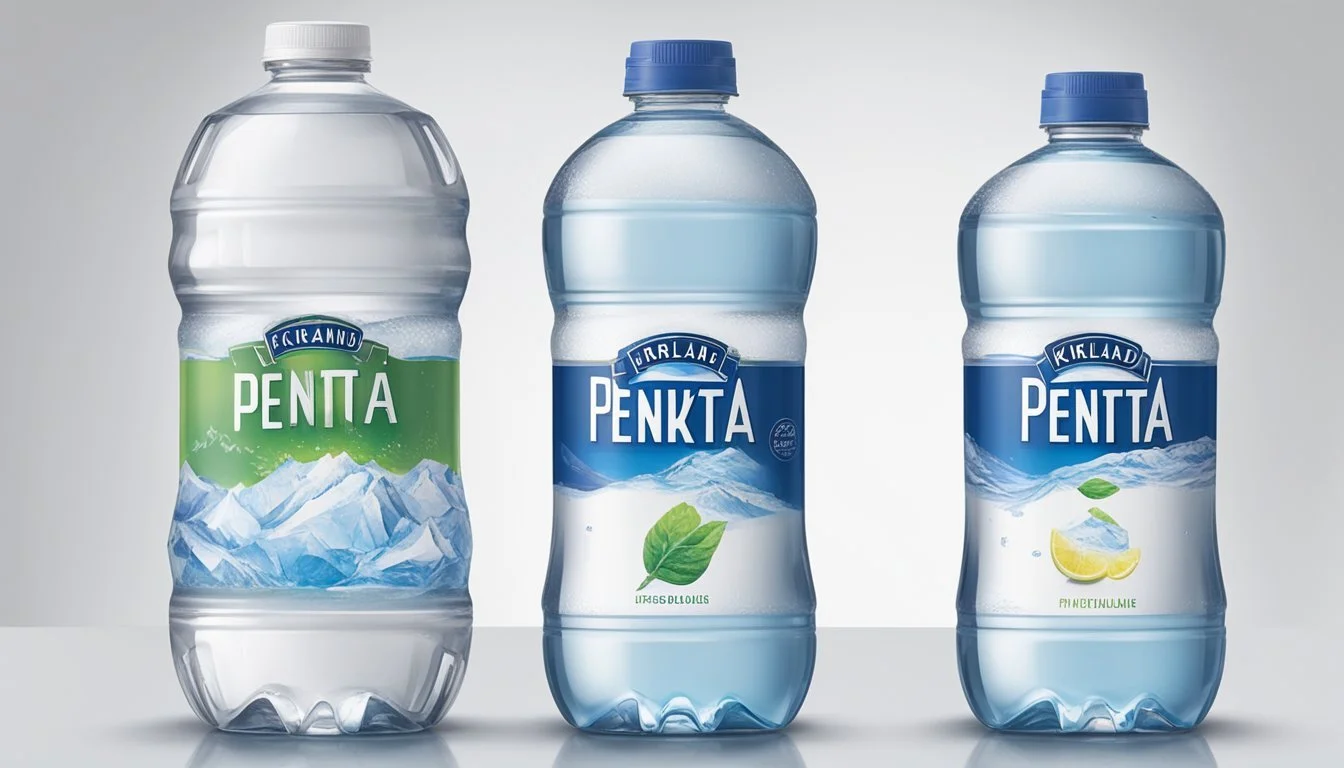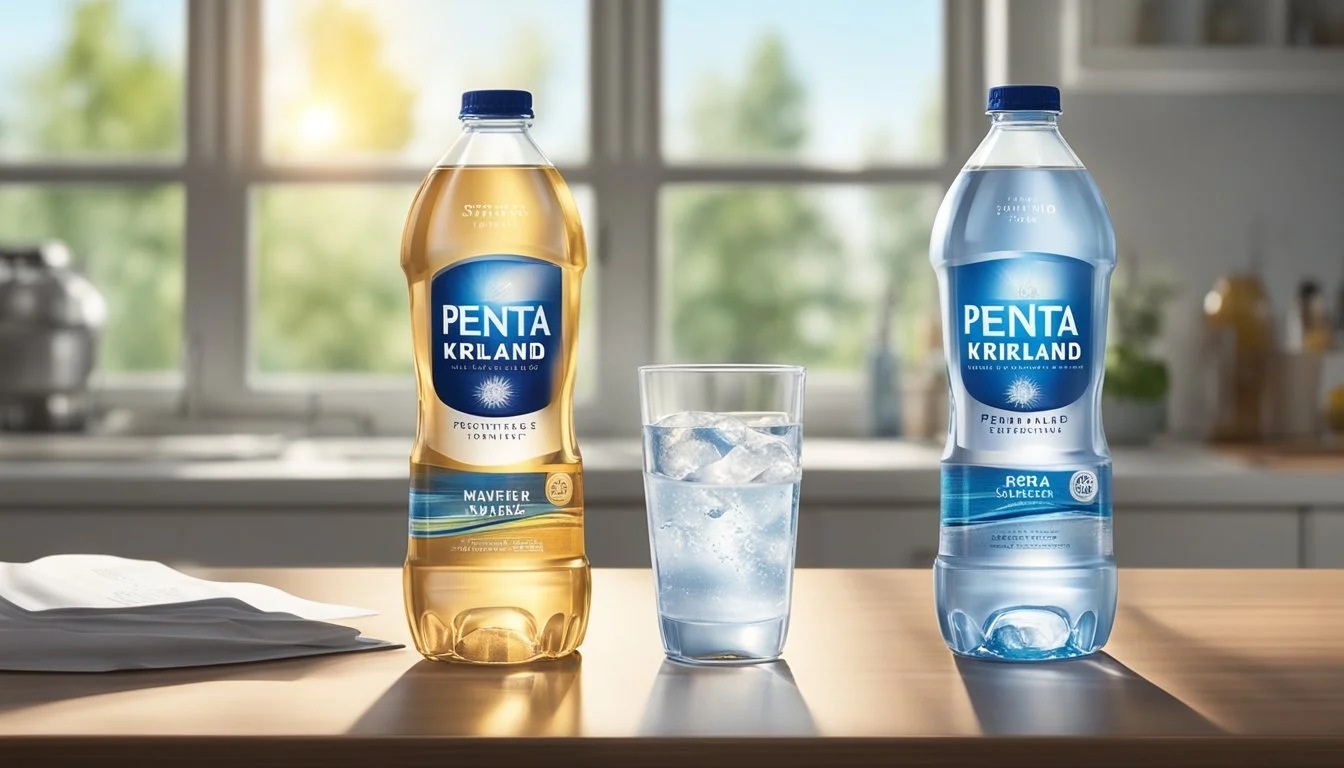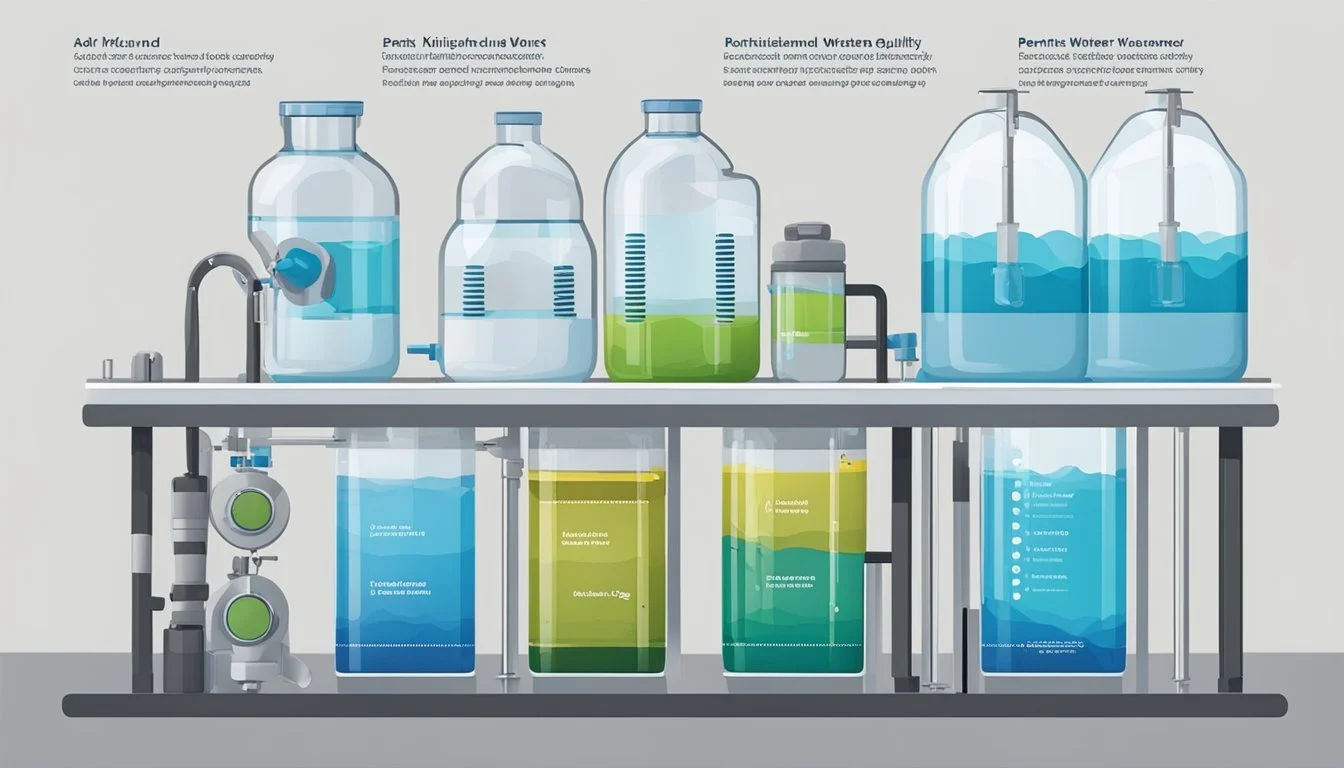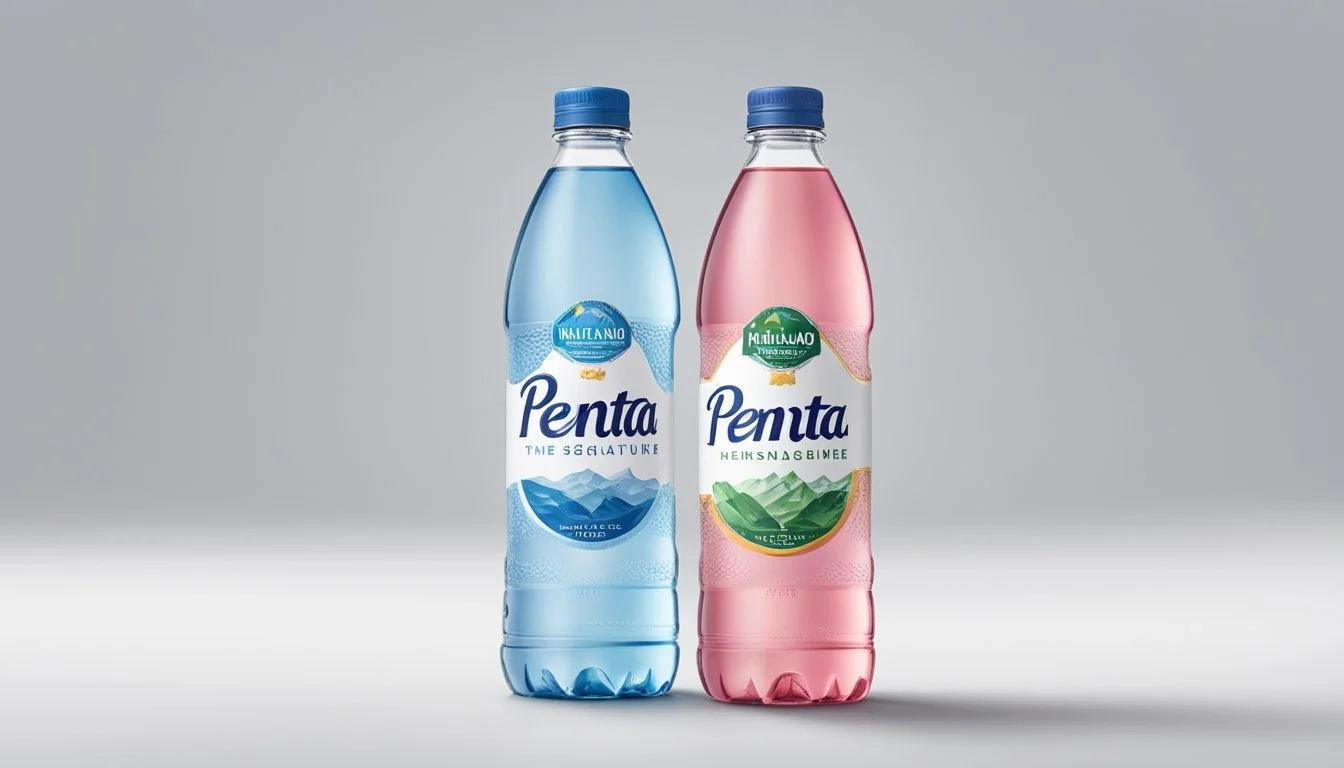Penta vs. Kirkland Signature
Comparing Quality and Taste
When it comes to choosing bottled water, consumers often find themselves deciding between well-known brands like Penta and Kirkland Signature. Penta is renowned for its ultra-pure water, achieved through a 13-step purification process that ensures a clean, crisp taste. On the other hand, Kirkland Signature, Costco’s private label, offers purified water with added minerals for taste. Both brands have their unique selling points, and understanding these can help consumers make a more informed choice.
Penta’s multi-step purification process includes reverse osmosis and microfiltration, resulting in a product free from impurities and contaminants. This rigorous process appeals to those who prioritize purity in their drinking water. Kirkland Signature, produced with added electrolytes, appeals to a broader audience looking for refreshment with a hint of minerals, often at an affordable price.
Choosing between Penta and Kirkland Signature may ultimately come down to personal preference regarding taste and price point. For those who value a high level of purity, Penta may be the preferred option, whereas Kirkland Signature offers a cost-effective alternative with a touch of mineral taste. This comparison intends to delve deeper into the qualities and benefits of each brand, helping readers make the best choice for their lifestyle and preferences.
Bottled Water Industry Overview
The bottled water industry is a significant economic sector, with notable revenue generation and job creation. Key insights include the different types of bottled water and the leading brands that dominate the market.
Understanding Bottled Water
The bottled water industry encompasses a variety of water types, including spring, purified, and mineral water. Spring water is sourced from natural springs, purified water undergoes treatment processes like reverse osmosis, and mineral water contains minerals that occur naturally.
Sales of bottled water have surged due to consumer preferences for convenient, safe drinking options. Environmental concerns, such as plastic waste, influence industry trends, pushing companies towards more sustainable practices. These dynamics are crucial for understanding the industry's growth and challenges.
Major Bottled Water Brands
The bottled water market features several prominent brands, including Kirkland Signature and Penta. Kirkland's water, produced by Niagara Bottling, is widely recognized for its affordability and quality.
Other notable brands are Evian, sourced from the French Alps, and Fiji Water, known for its unique mineral profile from an artesian aquifer in Fiji. The competition among leading brands drives innovation in packaging and marketing.
Various companies co-brand products, enhancing their market reach. For instance, Kirkland water is marketed through Costco, leveraging the wholesale retailer's extensive distribution network. This collaborative approach is a key strategy for many bottled water brands.
Health and Hydration Benefits
Penta and Kirkland Signature bottled waters offer various benefits related to hydration and health. Evaluating their source and composition reveals key differences in their potential health implications.
Hydration and Healthy Living
Penta water is known for its ultra-purified properties. The purification process removes impurities, resulting in water that enhances cellular hydration. This water has a slightly higher pH, often marketed as alkaline water, which some believe to support overall body balance.
Kirkland Signature water is sourced from natural springs, offering a blend of hydration and essential minerals. Distilled to remove most contaminants, it retains beneficial minerals like calcium and magnesium. These elements are crucial for maintaining electrolyte balance and overall hydration.
Water Source and Health Implications
Penta sources its water from local sources but focuses on molecular purification. This process claims to make the water more bioavailable, meaning the body can absorb it more efficiently, possibly enhancing hydration.
Kirkland Signature's natural spring water origin provides a moderately mineralized water. The minerals from natural spring sources support bone health and muscle function. Its filtration process ensures the removal of harmful substances while retaining beneficial minerals, striking a balance between purity and nutritional value.
Choosing between Penta and Kirkland Signature may depend on one's preference for ultra-pure versus naturally mineralized water. Both options offer substantial hydration benefits, with Penta focusing on purity and absorption, while Kirkland Signature offers the benefits of naturally occurring minerals.
Comparing Penta and Kirkland Signature
In this section, we will explore the brand profiles of Penta and Kirkland Signature, examine their taste and purity, and delve into their specific production and purification processes.
Penta Water: Brand Profile
Penta Water, known for its premium positioning, emphasizes ultra-purity and a crisp, clean taste. It uses a proprietary 13-step purification process to remove impurities at the molecular level, ensuring water that is free from contaminants. Penta's unique approach includes Hydro-7, a process that promises thorough purification. The brand targets health-conscious consumers who prioritize the highest level of purity and hydration benefits, marketing it as a premium option in the bottled water market.
Kirkland Signature Water: Brand Profile
Kirkland Signature is Costco's private-label brand, offering quality products at value prices. Their bottled water is sourced and produced by Niagara Bottling, a prominent name in the industry. Kirkland Signature water is known for its reliable taste and purity, making it a popular choice among consumers looking for everyday hydration. The brand is characterized by its affordability and consistent quality, which aligns with Costco's reputation for value.
Taste and Purity
When it comes to taste, Penta Water is often described as exceptionally pure and crisp, with a smooth texture. This is likely due to its intensive purification process, which removes virtually all impurities. Taste tests commonly highlight Penta's clean finish.
Kirkland Signature water has a slightly saccharine flavor as noted in some reviews, but it is generally appreciated for its refreshing taste. The purity is also commendable, though it might not match the ultra-purity claim of Penta. Both waters are free from common contaminants, but Penta’s extensive purification process sets it apart in this aspect.
Production and Purification Processes
Penta Water employs a proprietary 13-step purification process named Hydro-7, which includes micro-filtration, ultraviolet sterilization, and deionization to achieve its high purity level. This rigorous process ensures that the water is as close to pure H2O as possible, removing not only contaminants but also impurities at the molecular level.
Kirkland Signature water uses a combination of techniques, including reverse osmosis, deionization, and ultraviolet disinfection, through its producer, Niagara Bottling. This method is effective at eliminating contaminants and provides clean, safe drinking water. While its process is sophisticated, it is not quite as extensive as Penta's multi-step approach.
Both brands offer rigorously purified bottled water, but the intensity and detail of Penta’s Hydro-7 process stand out as particularly noteworthy in the market for premium bottled water.
Scientific Analysis of Water Quality
Investigating the quality of bottled water involves examining factors like pH levels, mineral content, and the presence of contaminants. These elements play a crucial role in determining the safety and health benefits of the water.
pH Levels and Mineral Content
The pH level of water indicates its acidity or alkalinity. Penta water typically has a neutral to slightly alkaline pH, around 7.4 to 8.2. This range is considered healthy and can aid in maintaining the body's pH balance.
Kirkland Signature water, on the other hand, often falls within the neutral pH range of around 7.0, which is suitable for most consumers’ needs.
Mineral content is also essential. Penta is known for its ultra-purified water, which results in lower mineral content. While this may appeal to those looking for fewer dissolved solids, it means fewer essential minerals like calcium and magnesium.
Kirkland Signature contains a balanced amount of electrolytes and minerals such as sodium, calcium, and magnesium, making it a better option for rehydration and daily consumption.
Contaminants and Safety Standards
Contaminant levels are critical when assessing water safety. According to federal agency standards, both EPA and FDA regulations enforce strict limits on harmful substances like lead, arsenic, and chlorine.
Penta water undergoes a rigorous purification process designed to reduce contaminants to undetectable levels.
Kirkland Signature adheres to similar safety standards. Independent tests have shown that it meets or exceeds FDA and EPA requirements for safe drinking water.
For lead, the FDA's limit is stricter, providing greater assurance of safety, which both brands meet. However, variations exist in their purification processes which can impact trace contaminant levels such as iron or chlorine.
In conclusion, while both brands prioritize safety and quality, the differences in mineral content and purification methods cater to distinct consumer preferences and health needs.
Environmental Impact and Sustainability
Examining the environmental impact and sustainability of bottled water brands is crucial to understanding their overall ecological footprint. This includes evaluating plastic usage and identifying more sustainable water brands.
Bottled Water and Plastic Usage
Penta's bottles are made from BPA-free plastic, commonly used to address concerns over harmful chemicals. However, plastic bottles contribute significantly to environmental pollution. They are often not recycled, leading to overflowing landfills and pollution.
Kirkland Signature also utilizes plastic bottles, which introduces similar environmental concerns. While some of their packaging may be recyclable, the widespread use of plastic remains a major issue.
Reducing plastic consumption is a primary environmental goal. Alternatives like boxed water options, which use paper-based cartons, offer a more eco-friendly solution. These alternatives are gaining popularity as they help reduce reliance on plastic and minimize ecological impact.
Sustainable Water Brands
Among bottled water brands, some prioritize sustainability. Boxed Water, for instance, uses paper-based cartons from sustainable sources, lowering environmental footprints.
Penta focuses more on water purity rather than packaging sustainability. Their BPA-free bottles offer a safer alternative to traditional plastics, but they still contribute to environmental issues due to plastic usage.
Kirkland Signature does not emphasize sustainability in their branding. Their focus is often on affordability and availability rather than environmental responsibility. This makes sustainable choices like Boxed Water or other eco-friendly brands more attractive to environmentally-conscious consumers.
Choosing brands with sustainable practices can significantly impact the environment positively. Brands leading in sustainability efforts often gain consumer trust and contribute to environmental preservation.
Consumer Preferences and Behaviors
Understanding consumer preferences can shed light on why people choose Penta or Kirkland Signature bottled water. Factors like taste, cost, and health concerns play crucial roles.
Market Trends and Consumer Reports
Consumer behavior in the bottled water market shows a trend towards seeking purity and transparency. Reports indicate that brands like Penta often appeal to health-conscious individuals, thanks to its ultra-purified water. Kirkland Signature, available at Costco, attracts budget-conscious consumers who value quality at a lower price point.
Data from Consumer Reports reveals that while both brands score well in taste, consumers distinguish between them based on additional criteria like mineral content and environmental impact. Market trends also show increased scrutiny over ingredients listed on the labels, driving consumers to scrutinize water sources.
Choosing the Right Bottled Water
Consumers prioritize different features when selecting bottled water. For Penta, the focus is on its proprietary purification process, which claims to remove more impurities than standard methods. This appeals to consumers concerned with the cleanest possible option.
Conversely, Kirkland Signature is preferred for its cost-effectiveness. Though it might not have the premium branding of Penta, it is often ranked among the best low-cost options. Consumers appreciate the balance between quality and affordability, making it a popular choice for everyday hydration.
Considerations like ingredient transparency, taste, and convenience also influence consumer choices, reflecting broader preferences and behaviors in the bottled water industry.
Comparative Analysis of Cost and Value
When comparing Penta and Kirkland Signature bottled water, key factors include their price and the trade-offs between their cost and quality.
Price Evaluation
Penta water is often found at premium retailers like Whole Foods, and its price reflects this positioning. A typical price for a gallon of Penta can be around $9-$10.
In contrast, Kirkland Signature, sold at Costco, offers more affordable pricing. A case of 40 bottles (16.9 oz each) can be priced around $3-$4, making it about $0.09 per bottle.
The price disparity is significant, showing that Penta is positioned as a high-end product, whereas Kirkland Signature focuses on cost-effectiveness and value for bulk buyers.
Quality and Cost Trade-Offs
Penta markets itself on purity and the multi-step purification process it employs. This includes patented technology aimed at offering a cleaner taste and purported health benefits, which justifies its higher cost.
Kirkland Signature, while more economical, still maintains reasonable quality. It sources its water from various reputable locations and undergoes standard purification processes.
The higher price of Penta may appeal to consumers prioritizing perceived health benefits and superior purity. Kirkland Signature appeals to those who need reliable bottled water at a lower cost, often in larger quantities, making it a suitable choice for families or offices.
Conclusion
In comparing Penta and Kirkland Signature bottled waters, it's essential to outline the specific attributes and factors that consumers should consider when making a choice.
Final Thoughts on Penta and Kirkland Signature
Penta is renowned for its purity and unique 13-step purification process, which sets it apart from many bottled waters on the market. It emphasizes ultra-purification and is free from additives, appealing to those who prioritize purity above all else.
Kirkland Signature, on the other hand, offers a cost-effective solution without compromising on quality. It is widely available and sourced from carefully monitored springs. While it may not undergo the same stringent purification as Penta, it provides a reliable and affordable option.
The bottom line is that the final verdict hinges on individual preferences. Those seeking the utmost purity and willing to pay a premium might favor Penta. Consumers looking for affordability and consistent quality will find Kirkland Signature meets their needs well.
More About Penta
Mountain Valley Spring Water vs Penta: Which Bottled Water is Better?
Penta vs Richard's Rainwater: Which Bottled Water is Better?
Penta vs Whole Foods Italian Still Mineral water: Which Bottled Water is Better?
More About Kirkland Signature
1907water vs Kirkland Signature: Which Bottled Water is Better?
7-Select vs Kirkland Signature: Which Bottled Water is Better?
Acqua Pana vs Kirkland Signature: Which Bottled Water is Better?
Alkaline88 vs Kirkland Signature: Which Bottled Water is Better?
Antipodes vs Kirkland Signature: Which Bottled Water is Better?
Aqua Carpatica vs Kirkland Signature: Which Bottled Water is Better?
Aquafina vs Kirkland Signature: Which Bottled Water is Better?
Arrowhead vs Kirkland Signature: Which Bottled Water is Better?
Big Chill vs Kirkland Signature: Which Bottled Water is Better?
Big Win vs Kirkland Signature: Which Bottled Water is Better?
BodyArmor vs Kirkland Signature: Which Bottled Water is Better?
Boxed Water vs Kirkland Signature: Which Bottled Water is Better?
Cascade Mountain vs Kirkland Signature: Which Bottled Water is Better?
Castle Rock vs Kirkland Signature: Which Bottled Water is Better?
Core Hydration vs Kirkland Signature: Which Bottled Water is Better?
Crystal Geyser vs Kirkland Signature: Which Bottled Water is Better?
Deer Park vs Kirkland Signature: Which Bottled Water is Better?
Erewhon vs Kirkland Signature: Which Bottled Water is Better?
Essentia vs Kirkland Signature: Which Bottled Water is Better?
Eternal vs Kirkland Signature: Which Bottled Water is Better?
Hawaii Volcanic vs Kirkland Signature: Which Bottled Water is Better?
Hawaiian Springs vs Kirkland Signature: Which Bottled Water is Better?
Ice Mountain vs Kirkland Signature: Which Bottled Water is Better?
Icelandic Glacial vs Kirkland Signature: Which Bottled Water is Better?
Just Water vs Kirkland Signature: Which Bottled Water is Better?
Kirkland Signature vs Action: Which Bottled Water is Better?
Kirkland Signature vs CBD Living: Which Bottled Water is Better?
Kirkland Signature vs Crystal Lake: Which Bottled Water is Better?
Kirkland Signature vs Dasani: Which Bottled Water is Better?
Kirkland Signature vs Essence pH10: Which Bottled Water is Better?
Kirkland Signature vs HFactor: Which Bottled Water is Better?
Kirkland Signature vs Proud Source: Which Bottled Water is Better?
Kirkland Signature vs Ramona: Which Bottled Water is Better?
Kroger vs Kirkland Signature: Which Bottled Water is Better?
LIFEWTR vs Kirkland Signature: Which Bottled Water is Better?
Liquid Death vs Kirkland Signature: Which Bottled Water is Better?
Mananalu vs Kirkland Signature: Which Bottled Water is Better?
Mountain Valley Spring Water vs Kirkland Signature: Which Bottled Water is Better?
Nestle Pure Life vs Kirkland Signature: Which Bottled Water is Better?
Open Water vs Kirkland Signature: Which Bottled Water is Better?
Ophora vs Kirkland Signature: Which Bottled Water is Better?
Origin vs Kirkland Signature: Which Bottled Water is Better?
Ozarka vs Kirkland Signature: Which Bottled Water is Better?
Perrier vs Kirkland Signature: Which Bottled Water is Better?
Poland Spring vs Kirkland Signature: Which Bottled Water is Better?
Pure Life vs Kirkland Signature: Which Bottled Water is Better?
Purely Sedona vs Kirkland Signature: Which Bottled Water is Better?
Refreshe vs Kirkland Signature: Which Bottled Water is Better?
Richard's Rainwater vs Kirkland Signature: Which Bottled Water is Better?
San Pellegrino vs Kirkland Signature: Which Bottled Water is Better?
Simple Truth vs Kirkland Signature: Which Bottled Water is Better?
Smartwater vs Kirkland Signature: Which Bottled Water is Better?
Solan de Cabras vs Kirkland Signature: Which Bottled Water is Better?
Starkey vs Kirkland Signature: Which Bottled Water is Better?
Talking Rain AQA vs Kirkland Signature: Which Bottled Water is Better?
The Well vs Kirkland Signature: Which Bottled Water is Better?
Topo Chico vs Kirkland Signature: Which Bottled Water is Better?
Tru Alka vs Kirkland Signature: Which Bottled Water is Better?
Volvic vs Kirkland Signature: Which Bottled Water is Better?
Waiakea vs Kirkland Signature: Which Bottled Water is Better?
Weird Water vs Kirkland Signature: Which Bottled Water is Better?
Whole Foods 365 vs Kirkland Signature: Which Bottled Water is Better?
Whole Foods Italian Still Mineral water vs Kirkland Signature: Which Bottled Water is Better?
Zenwtr vs Kirkland Signature: Which Bottled Water is Better?
Zephyrhills vs Kirkland Signature: Which Bottled Water is Better?







